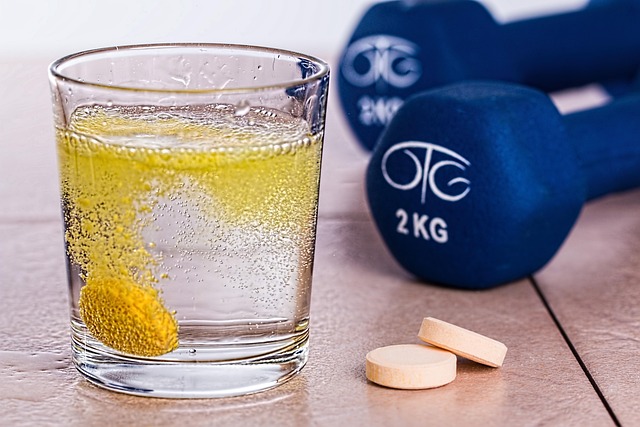Proper nutrition is a game-changer in injury recovery and physical care, complementing physical therapy programs and mobility exercises. Tailored dietary approaches optimize sports injury recovery by reducing inflammation, enhancing immune function, accelerating tissue repair, and supporting muscle strengthening. Incorporating injury prevention tips through diet ensures long-term well-being, faster healing, improved outcomes, and a reduced risk of future injuries. Combining specific nutrition strategies with physical therapy, pain management, and targeted mobility restoration exercises is crucial for holistic care and enhanced athletic performance.
Injury recovery and physical care go hand in hand with proper nutrition, playing a pivotal role in the success of any physical therapy program. Understanding how nutrients support tissue repair and enhance healing is essential for developing effective post-injury rehabilitation strategies. This article explores the integration of nutrition into physical therapy, focusing on sports injury recovery plans. From mobility restoration exercises to pain management strategies and muscle strengthening routines, discover how targeted dietary approaches can optimize healing and prevent future injuries.
- Understanding Nutrition's Role in Injury Recovery and Physical Care
- Integrating Nutrition into Physical Therapy Programs
- Enhancing Post-Injury Rehabilitation with Targeted Dietary Approaches
- Sports Injury Recovery: Nutritional Support for Optimal Tissue Repair and Prevention
Understanding Nutrition's Role in Injury Recovery and Physical Care

Understanding Nutrition’s Role in Injury Recovery and Physical Care
Proper nutrition plays a pivotal role in supporting injury recovery and physical care, serving as a cornerstone for successful post-injury rehabilitation. When combined with effective physical therapy programs and mobility restoration exercises, a well-rounded nutritional approach can significantly accelerate the healing process. For athletes or individuals involved in sports, sports injury recovery plans must incorporate specific dietary considerations to optimize muscle strengthening routines and enhance overall performance.
In the context of pain management strategies, balanced nutrition helps alleviate inflammation and reduces the impact of chronic pain. By focusing on nutrient-rich foods and tailored meal plans, individuals can boost their immune systems, facilitate tissue repair, and promote faster recovery. Moreover, incorporating injury prevention tips into one’s dietary habits can mitigate future health issues, ensuring long-term well-being and optimal physical functionality.
Integrating Nutrition into Physical Therapy Programs

Integrating proper nutrition into physical therapy programs is a game-changer in promoting effective injury recovery and enhancing physical care. When combined with targeted exercises like mobility restoration routines and pain management strategies, a well-structured dietary approach can significantly contribute to successful post-injury rehabilitation. Athletes and individuals recovering from sports injuries can benefit from tailored nutrition plans that support muscle strengthening routines, ensuring optimal performance during the healing process.
By incorporating injury prevention tips into daily diets, patients can actively participate in their own care. This holistic method addresses not just the physical aspects of recovery through mobility exercises but also considers the body’s nutritional needs to rebuild and repair tissues. As a result, it accelerates the healing process, improves overall outcomes, and sets individuals on a path to return to their active lifestyles, be it athletic competition or daily routines, with enhanced resilience and reduced risk of future injuries.
Enhancing Post-Injury Rehabilitation with Targeted Dietary Approaches

Injury recovery and physical care go hand in hand, and targeted dietary approaches can significantly enhance post-injury rehabilitation efforts. Incorporating specific nutrition strategies alongside physical therapy programs is a powerful tool for athletes and individuals looking to restore mobility after an injury. By tailoring dietary plans to support tissue repair and inflammation reduction, individuals can optimize their recovery process. For instance, promoting protein intake facilitates muscle repair and growth, while anti-inflammatory foods aid in reducing pain and swelling.
In the context of sports injury recovery plans, a well-structured diet can be as crucial as mobility restoration exercises and pain management strategies. Muscle-strengthening routines benefit from adequate nutrition to support muscle fiber repair and synthesis. Additionally, dietary interventions can help prevent further injuries by ensuring the body has the necessary nutrients for optimal joint health and overall physical performance. These targeted dietary approaches are an integral part of a comprehensive post-injury rehabilitation strategy, complementing traditional physical therapy techniques.
Sports Injury Recovery: Nutritional Support for Optimal Tissue Repair and Prevention

Sports injuries can significantly impact an athlete’s performance and overall well-being. Nutritional support plays a crucial role in optimizing tissue repair and accelerating recovery, often just as important as physical therapy programs and post-injury rehabilitation. A tailored sports injury recovery plan should include specific dietary considerations to aid in muscle repair, reduce inflammation, and restore mobility.
Proper nutrition helps replenish glycogen stores, supports collagen synthesis for stronger tissues, and provides essential amino acids required for muscle protein repair. In addition to a balanced diet, incorporating anti-inflammatory foods and staying hydrated can effectively manage pain and support the body’s natural healing processes. Combining these strategies with targeted mobility restoration exercises and effective pain management techniques creates a holistic approach to sports injury recovery, ultimately contributing to faster return to play and reduced risk of future injuries.
Integrating nutrition into injury recovery and physical care is a multifaceted approach that can significantly enhance the effectiveness of physical therapy programs. By understanding the role of nutrition in supporting tissue repair, promoting mobility restoration exercises, and managing pain, healthcare professionals can optimize post-injury rehabilitation. Targeted dietary approaches, tailored to individual needs, complement sports injury recovery plans by fostering muscle strengthening routines and providing essential injury prevention tips. Embracing these strategies ensures a holistic approach to achieving optimal health and well-being after an injury.
